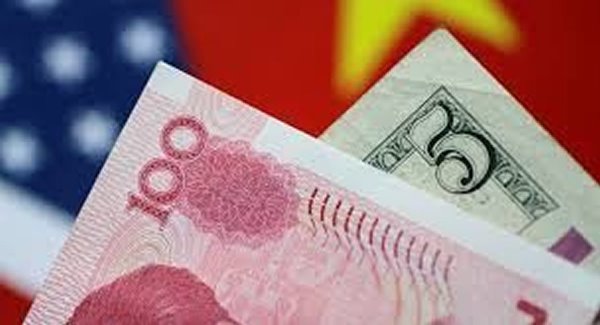Manufacturers Association of Nigeria (MAN) and Standards Organization of Nigeria (SON) are among real sector stakeholders conferred with the Commerce and Industry Correspondent Association of Nigeria (CICAN) awards on Thursday.
Mr Charles Okonji, Chairman, CICAN, at the association’s awards night in Lagos. said MAN was recognised for its giant strides in advocacy for the real sector, while the SON award was for sustaining focus on standards.
“Mr Malinson Ukatu received an award for pioneering tiles production in Nigeria, Mr George Onafowakan for great strides in wiring and cables, Igwe Chris Oranu for great manufacturing feat.
“Mrs Zaheera Baba-Ali received Public Officer for the Year Award; Bede Obayi got the award for Standards Ambassador for the Decade and Dr Adeola Odedina was awarded Agricultural Performer of the Year.
“The Nigerian Association of Chambers of Commerce, Industry, Mines and Agriculture (NACCIMA) got the award for sustainable partnership with CICAN,” he said.
In his address, Dr Muda Yusuf, Chief Executive Officer, Centre for the Promotion of Private Enterprise (CPPE), called for the adoption of a flexible exchange rate policy regime to mitigate the current foreign exchange crisis.
Yusuf said the move would minimize discretion and arbitrage in the foreign exchange allocation mechanism, reduce uncertainty and inspire the confidence of investors.
“Let me clarify that this is not a devaluation proposition.
“Rather, is it is a pricing mechanism that reflects the demand and supply fundamentals in the foreign exchange market.
“It is a model that is sustainable, predictable and transparent. It is a policy regime that would reduce uncertainty and inspire the confidence of investors.
“Devaluation is a policy choice often adopted to boost export and discourage imports.
“Countries adopt this measure, not necessarily because they have a foreign exchange or balance of payment crisis; but as deliberate trade policy strategy to make their exports cheaper.
“A flexible exchange rate regime on the other hand is adopted to cope with changing demand and supply conditions in the forex market,” he said.
Yusuf noted that the challenges of forex on the real sector, and indeed on practically all sectors, were three dimensional.
He said they included the sharp depreciation over the last one year, liquidity crisis and volatility of the exchange rate with its attendant uncertainty for investors.
The CPPE chief said the impact of the challenges on the sector led to high cost of production, low sales and increased business continuity risk for some segments of manufacturing.
“In the bid to reduce the pressure on foreign reserves, the Central Bank of Nigeria (CBN) had excluded over 40 items from access to foreign exchange in the official window.
“Some of the products on this list are intermediate products for some manufacturing firms.
“This had some degree of negative effects on some manufacturing firms.
“It would be advisable for the CBN to have a robust engagement with the stakeholders to review this list,” he said.
Yusuf listed the benefits of a flexible exchange rate model to include enhanced liquidity in the foreign exchange market, reduced uncertainty and increased confidence of investors.
“Additionally, it is a more transparent as mechanism for forex allocation, minimizes discretion in the allocation of forex and reduces opportunities for round tripping and other sharp practices.
“A fixed exchange rate regime on the other hand widens gap between the official and parallel market exchange rates, mounts trade debts, amongst others,” he said.
Mr Mallinson Ukatu, Managing Director, Mallinson and Partners Limited, appealed to government to make an investment friendly monetary policy to prevent the total collapse of industries.
He advocated for a means of unification of gas prices, in terms of paying in local currency, or pegging it at a fixed rate to ease the plights of manufacturers.
“Manufacturers are getting gas at a fixed rate of N400/$ for instance, we can plan with it, but as at today, the devaluation of Naira and with dollar continuously going up, the rate of gas has increased and the manufacturers are at the receiving end.
“Therefore, there is need to have a system whereby we pay for gas consumption in Naira at fixed price and not by conversion to CBN official exchange rates.
“If the government can give it as a rebate to the manufacturers, it will be a welcome decision,” he said.














